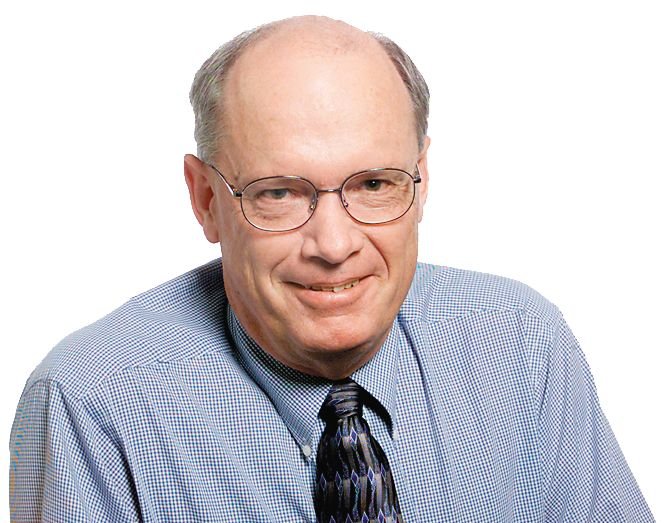Much as I would like for it to, my freedom of speech does not entitle me to sing “I’ve Been Working on the Railroad” on your front porch at 4 a.m. accompanied by my 2½-year-old granddaughter.
Nor does the Constitution enable local activists to angrily grind their axes with long-winded sermons on irrelevant topics at public meetings. And yet, anxious as they are to proselytize at every opportunity (especially when TV cameras roll), some local crusaders have been turning “citizen communication” portions of public meetings into unproductive harangues.
An extremely arduous balancing act is required by those who moderate these public meetings. The leaders must embrace the rights of citizens to address their elected officials while also guarding those same citizens’ right to efficient government. For elected officials to waste time listening to the ax grinders is to waste taxpayer-funded resources.
There is no perfect formula in this balancing act. Parameters are drawn differently, depending on wildly varying circumstances. If a public leader errs, it should be on the side of excessive freedom. If a citizen’s speech is a little too long or a little too rambling, well, that’s far better than a little too short or a little too narrowly focused.
What has happened recently at the Vancouver City Council meetings — even with all its combative rhetoric and annoying rancor — actually is a manifestation and celebration of our free-speech rights. It’s good that our nation’s Founding Fathers defined the debate that frequently flares in public arenas.
Each side (the activists and the public officials) ought to appreciate the interests of the other. When the balancing act gets a little too wobbly, when tempers flare and dialogue devolves into bellicosity, it’s time to perform one of the most difficult and humbling acts: putting oneself in the shoes of one’s adversaries. Vancouver City Councilor Jeanne Harris last Monday night clearly was fed up with the intrusion of crusaders at council meetings. And just as clearly, her treatment of the activists was rude, insulting and worthy of harsh reprimand. Looking ahead, both sides will be unable to move beyond this deadlock if neither side considers the needs of the other.
Private vs. public
The same principle that protects your front porch from my insufferable singing also promotes efficiency at government meetings, although to a lesser extent because your porch is private and the meetings are public. According to http://www.thefreelibrary.com, the U.S. Supreme Court has “developed a four-part test to determine the constitutional validity of time, place and manner regulation of expressive conduct in a public forum: (1) The regulation must serve an important government interest (e.g., public safety). (2) The government interest served by the regulation must be unrelated to the suppression of a particular message (i.e., content neutral). (3) The regulation must be narrowly tailored to serve the government’s interest. (4) The regulation must leave open ample alternative means for communicating the message.”
Sounds simple, but interpreting those four points is exceedingly complex. How, for example, do you define the “irrelevant topic” that is presented in this column’s second paragraph? There’s no easy answer. Striking a compromise requires patience and understanding by both sides.
While this debate rages, it’s sad that many valuable shareholders — the 165,000-plus Vancouver residents who stand, aghast, on the sidelines — seem to be ignored. Some would maintain that, because those folks don’t participate, they don’t matter. I would argue that, by their sheer numbers, they matter, and if they don’t participate it’s because they’re disgusted by what they see and hear. When public discussions become uncivil, civil citizens excuse themselves. That’s not good government.
There will never be winners or losers here. The best possible outcome is a peaceful coexistence, with abundant listening and tolerance on both sides. The Founding Fathers managed to achieve that balance. We’ll see if local activists and city councilors can, too.
John Laird is The Columbian’s editorial page editor. His column of personal opinion appears each Sunday. Reach him at john.laird@columbian.com.



